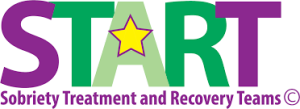Calendar

CWLA is pleased to present the three-part virtual training series that features the publication Working with Traumatized Children – A Handbook for Healing. Now in its third edition, Working with Traumatized Children has been updated to include new strategies and approaches for caregivers and others responsible for meeting the needs of children who are vulnerable.
Participants will gain a strengthened capacity to:
- Define what trauma is and differentiate it from stress
- Provide examples of trauma symptoms in children and adults
- Describe how trauma can impact children’s brains
- Advocate for the provision of safe environments when working with children and adults who have been affected by trauma
- Provide examples of how systems can be traumatizing or retraumatize people
- Explain the importance of understanding the vagus nerve when working with families and children who have been affected by trauma
- Express why self-reflective practices and supervision are important when working with this population
Training registrants will receive an electronic copy of Working with Traumatized Children, Companion Workbook which supplements the virtual training sessions. Training registrants are also eligible to receive a 30% discount on the purchase of hard copies of Working with Traumatized Children – A Handbook for Healing, Third Edition and Working with Traumatized Children, Companion Workbook. Use promo code WWTC-30 in CWLA’s Bookstore.

CWLA is pleased to present the three-part virtual training series that features the publication Working with Traumatized Children – A Handbook for Healing. Now in its third edition, Working with Traumatized Children has been updated to include new strategies and approaches for caregivers and others responsible for meeting the needs of children who are vulnerable.
Participants will gain a strengthened capacity to:
- Define what trauma is and differentiate it from stress
- Provide examples of trauma symptoms in children and adults
- Describe how trauma can impact children’s brains
- Advocate for the provision of safe environments when working with children and adults who have been affected by trauma
- Provide examples of how systems can be traumatizing or retraumatize people
- Explain the importance of understanding the vagus nerve when working with families and children who have been affected by trauma
- Express why self-reflective practices and supervision are important when working with this population
Training registrants will receive an electronic copy of Working with Traumatized Children, Companion Workbook which supplements the virtual training sessions. Training registrants are also eligible to receive a 30% discount on the purchase of hard copies of Working with Traumatized Children – A Handbook for Healing, Third Edition and Working with Traumatized Children, Companion Workbook. Use promo code WWTC-30 in CWLA’s Bookstore.

Participants in the workshop will:
- Understand trauma-informed care principles
- Become familiar with START’s new drug testing standards for parents in child welfare that are grounded in trauma-informed care principles
Become trauma-informed in approaching parents who have substance use challenges
Presenters
START experts Tina Willauer and Lynn Posze—along with panelists from START affiliates

The program consists of nine 2 hour sessions. Applicants must register for the entire 9-week program. The training program will offer participating professionals the opportunity to acquire or enhance the competencies, skills and insights necessary to effectively work with children and families in the child welfare system. Please see course descriptions and course presenters below. All nine courses will be led by national experts in the field of child welfare and child maltreatment.
Event Details Coming Soon!
March 5th: Block Physical Abuse: Solutions presented by Stacie LeBlanc, JD, MEd, FAPSAC
March 12th: Baffling, Bizarre, Beyond Belief Child Abuse Cases presented by Debra Esernio-Jenssen, MD, FAAP & Barbara Knox, MD
Resources
(FRIDAY) March 21st: Bogus Physical Abuse: Mimics of Maltreatment presented by Michelle Greene, DO
Resources
March 26th: Brains: Abusive Head Trauma presented by Randell Alexander, MD, PhD
Resources
April 2nd: Burns: Pediatric Burns and Their Medical Mimics in Child Maltreatment presented by Lauren Burge, MD
Resources
April 9th: Bull: Medical Child Abuse: Detecting, Surviving and Healing from Unprecedented Bull presented by Rebecca Gill, MD, Jordyn Hope & Brian Fleming
April 16th: Bones/Fractures presented by Dr. Adrienne Atzemis
April 23rd: Brains and Backlash: Medical Diagnosis, Legal Controversies, and Prevention Strategies for Abusive Head Trauma presented by Vincent J. Palusci, MD, MS, FAAP, FAPSAC
Resources
April 30th: Bruises and other Boo-Boos: Skin Injury presented by Dr. Adrienne Atzemis
The National Multidisciplinary Parent Representation Conference agenda will include 75-minute sessions and facilitated small group discussions, as well as plenary sessions. Sessions will focus on cutting-edge issues and skill-building to improve parent advocacy and outcomes for parents and their children.
